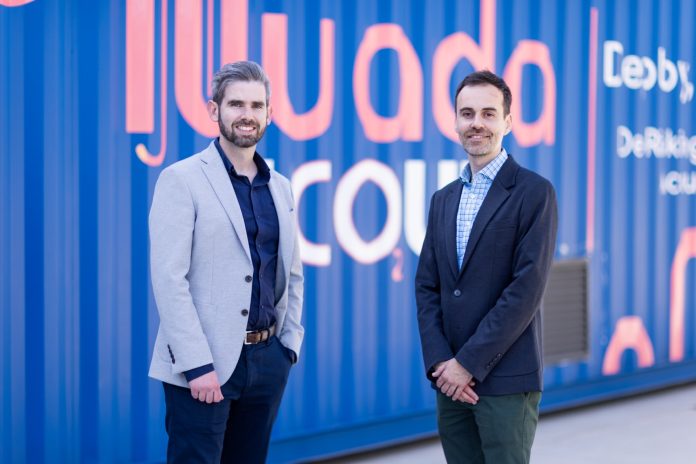Belfast, United Kingdom: Nuada has successfully completed the trial of its second pilot plant, Nuada Scout, at the Energy Innovation Centre (formerly TERC) at the University of Sheffield.
Designed, built and commissioned in under a year, the industrial pilot plant has been capturing carbon dioxide from biomass-derived flue gases at pilot scale, delivering one tonne of CO₂ capture per day with high purity and stable performance.
Nuada has developed a solution to capture industrial carbon emissions before they enter the atmosphere, targeting sectors such as cement, lime, and waste-to-energy. Compared to traditional methods, Nuada’s technology is more efficient and cost-effective, requiring 90 per cent less energy than conventional approaches. The system passes industrial emissions through a sponge-like metal organic framework (MOF) sorbent material, which selectively adsorbs CO₂ molecules. A vacuum process is then used to efficiently extract the captured CO₂, without the need for large-scale chemical plants or complex infrastructure.
Conventional carbon capture methods rely on energy-intensive processes and require large, capital heavy installations. Their complexity and infrastructure demands make carbon capture deployment costly and disruptive for industrial emitters/sites. In contrast, Nuada’s approach has the potential to eliminate the need for large chemical processing systems, offering a compact, easy-to-integrate and lower-energy solution suitable for widespread industrial deployment.
The pilot forms part of a project awarded funding via the CCUS Innovation 2.0 programme, as part of the Department for Energy Security and Net Zero’s £1 billion Net Zero Innovation Portfolio.
Visitors from the Department for Energy Security and Net Zero, the Carbon Capture and Storage Association, and Nuada’s investors recently viewed the pilot plant in operation and heard more about the company’s progress.
Key outcomes from the Nuada Scout pilot include:
• Capture of 1 tonne per day of CO₂ from energy-from-waste and biomass flue gas
• Stable MOF-VPSA operation demonstrated at pilot scale
• Validation of platform performance across both biomass and cement applications
“With this second successful pilot, Nuada is ready to move from demonstration to commercial-scale deployment. Our low-energy, compact system removes the cost and integration complexity barriers that have long held back industrial carbon capture,” said Conor Hamill, co-CEO at Nuada. “Carbon capture must move from aspiration to implementation. This pilot proves that Nuada’s technology is ready to meet that challenge practically, affordably and at scale.”
Nuada’s MOF-VPSA technology requires up to 90% less energy than conventional carbon capture systems offering a scalable, low-energy, and cost-effective solution that can be installed “end of pipe.” By reducing costs and easing integration, it lowers barriers to CCUS investment, making large scale industrial decarbonisation more viable and speeding up progress toward net zero.
Nuada is a carbon capture company poised to decarbonise heavy industries through its next generation point-source capture technology. The company builds energy-efficient filtration units that capture CO2 from industrial off-gases, empowering emitters in hard-to-abate sectors to reduce their carbon footprint with minimum impact on their bottom line.















